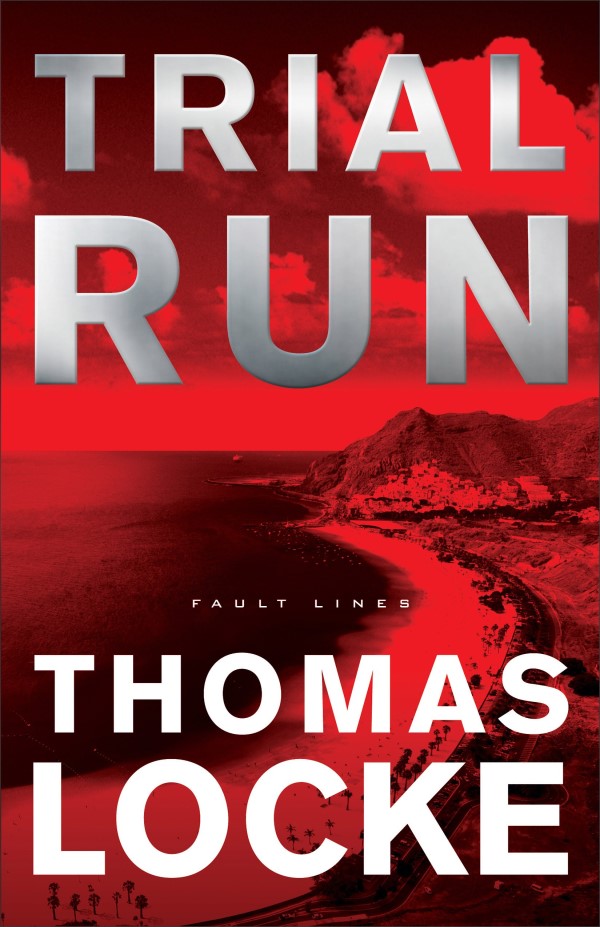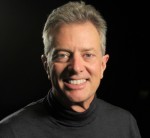
MY REVIEW:
Whether you want to call it sci-fi or a suspense/thriller, “Trial Run” is a tale that might leave the reader wondering just how close we might be to experiencing some of what takes place within its pages. It took me a bit to really get into the story – probably because of the vast array of characters and trying to wrap my mind around who was who and exactly what their role might be. It actually took me until at least halfway through to decide who were the good guys and who were the bad guys. At times I still was uncertain but it quickly became evident.
Locke deals with some concepts in “Trial Run” such as quantum physics, computer science, and other modern marvels that may be over many readers’ heads. It was over mine but I managed to enjoy the story without attempting to understand everything. The idea of out-of-body time travel and its potential are intriguing but the possibilities raised in this book make me hope it is not possible.
Although “Trial Run” is marketed as a mainstream novel, it is a clean read with no gratuitous sex or violence. There is plenty of action, espionage, suspense, and even a touch or two of romance. It is not the book for everyone but those who enjoy this genre should find it to their taste. It’s not my favorite type novel but I did find it interesting enough to want to learn the outcome. And I might just want to read the next installment of the series. 
This book was provided for review by Blogging Bistro, LLC.
ABOUT THE BOOK:
Where does perception end and reality begin?
Can your mind actually cause something to happen in the “real” world?
What happens when we throw out our conception of the limits of space and time?
When science, government, and big business clash, who will ultimately have control of our information, our privacy, and even our very thoughts?
One thing remains clear:
What you don’t know can kill you.
Free sample of Trial Run by Thomas Locke
ABOUT THE AUTHOR:
 Thomas Locke is an award-winning novelist with total worldwide sales of seven million copies.
Thomas Locke is an award-winning novelist with total worldwide sales of seven million copies.
His work has been published in twenty languages, and critical acclaim includes four Christy Awards for excellence in fiction and his 2014 induction into the Christy Hall of Fame.
Thomas divides his time between Florida and England, where he serves as Writer In Residence at Regent’s Park College at The University of Oxford. Visit Thomas at http://tlocke.com.

Q&A With Thomas Locke, author of Trial Run
Q: What reader did you have in mind when you were writing Trial Run?
Thomas Locke: I suspect there are a lot of readers out there like me, who love mainstream fiction in principle, but are dismayed by how dark it is becoming.
I love to read. I am happiest with a good book in my hands. And most of my purchases are mainstream fiction. Too often, however, I find myself skipping over bits that are just plain not necessary for a good story.
I wrote Trial Run for readers like me. Passionate about story, yearning for the thrill of a great tale, hoping for something that uplifts as well as ignites.
Here’s a video trailer for Trial Run, hot off the press:
Q: In Trial Run, you introduce several seemingly unrelated threads at the beginning of the story. By the end of the story, those threads have become woven together in an intricate tapestry. What’s your thought process behind this writing strategy?
Thomas Locke: This concept can best be summed up by the phrase you often hear a Hollywood producer say: “Where is the cut?”
By this, the producer means, what can you leave out of the script so that the audience must figure things out for themselves?
Instead of spoon-feeding the audience every item required to move to the climax, things are left unsaid. This sense of vacuum draws the audience into the action, and hurries them forward to the story’s close.
Q: Several settings in Trial Run (Santa Barbara, CA, the Italian/Swiss border site) depict real places. How do you select these real-life settings for your stories, and do you alter details of these places to suit your stories?
Thomas Locke: The core element of my placing a story is research. And the core element in my research is emotion. For many people, the ‘take’ that I finally use in the story does not jibe with what they like to see as valid for a particular setting, especially when that place is close to their heart and I have used a more negative perspective. But the facts have been carefully studied.
An example from Trial Run is Santa Barbara. For a lot of people who know and love California, this is their absolute favorite place in the SoCal region. And for good reason. It is a lovely town, one my wife and I really enjoy visiting.
For this story, I was granted an insider’s view into the University of California at Santa Barbara, or UCSB. And from the perspective of many students enrolled there, UCSB is filled with hyper-inflated SoCal egos.
The contrast I found between the students with money (and in SoCal, when I say they had money, I really mean they had money) and those who don’t is as sharp as anywhere I have ever been. The student who formed my core source and guide was on a scholarship. He was there to study. He was, to say the least, in a minority.
Everything I described about the school, the bicycle traffic and the events on the beach and the housing, are based on observation. But the perspective was based upon the humorous bafflement with which this student viewed many of his fellow classmates.
I personally love this aspect of building a story. The research at this emotional level grants me the opportunity to see the world through another person’s eyes and heart. Being trusted with this, time and again, is part of the miracle process that happens every time I start a new tale.
Q: I’ve heard there’s a free ebook prequel to Trial Run. How can I get a copy?
Thomas Locke: As I was writing the opening scenes of Trial Run, I found myself continually asking questions about what happened before that door opened and before the party started. I began sketching a sort of parallel story, laying out ideas that formed the story-before-the-story.
“Double Edge” is the result.
The publishers liked the short story prequel so much that they have asked me to write a complete novel based upon these concepts. This novel will form either book three or book four in the series.
You’ll find links on my website http://tlocke.com/fault-lines/ for downloading your free copy of “Double Edge” from your favorite online bookseller.
Q: Trial Run is book 1 in the three-volume Fault Lines series. Please give us a preview of what to expect in book 2.
Thomas Locke: This is a timely question, as I completed the first draft of book 2 on June 8. The working title is Flash Point.
In many respects, Flash Point is a true hybrid. By this I mean that the core themes are the same as in Trial Run. But everything is also very different. I had two key questions in mind when I started book two: How far can I take this? How much can I risk?
This whole concept of controlled out-of-body experiences opens up a completely new vista. I had to develop a new story framework for Trial Run, and everywhere I looked I found myself asking the same questions:
- Where does this take mankind?
- If this could actually happen, where do we go?
- Who are we as people?
- How would this remake us?
These questions are first asked in Flash Point. Where we go from here depends mostly upon you, the reader.
So let’s dance!
Get to know Thomas Locke at these online outlets:
Website: http://tlocke.com/
Subscribe to Thomas’s e-newsletter and blog: http://eepurl.com/5cnH5
Receive Thomas’s latest blog posts via your feed reader: http://tlocke.com/blog/feed/
Facebook: https://www.facebook.com/tlockebooks
Goodreads: https://www.goodreads.com/thomas_locke
Twitter: https://twitter.com/tlockebooks
Pinterest: http://www.pinterest.com/tlockebooks/






